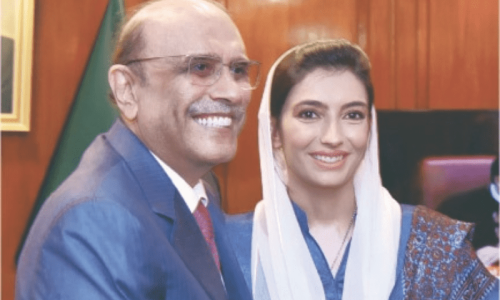
WASHINGTON: Republican congressman Dan Burton criticized the White House last September for ignoring the persistent violence and unrest in the disputed Himalayan territory of Kashmir. Barack Obama, he noted, pledged during the 2008 presidential campaign to defuse what has been long a flashpoint between Pakistan and India, nuclear-armed neighbors that each claim Kashmir as their own. ''So far, this is a promise unfulfilled,'' Burton said.
Not for a lack of trying on Pakistan's part. Pakistan's spy agency, Inter-Services Intelligence, directed a clandestine, multi-million dollar effort through a Washington nonprofit group to influence the US position on Kashmir, the Justice Department said last week. Documents filed in federal court describe donations to political campaigns and meetings with White House and State Department officials. Burton, co-chairman of the House Pakistan Caucus, may have received more than $11,000 in illicit contributions.
But there's little to show for Pakistan's hefty investment of money and time.
The US considers Kashmir an issue to be resolved by Pakistan and India and not by policymakers in Washington, a hands-off approach India firmly backs. The result sheds light on the high-stakes proxy battle Pakistan and India are waging behind the scenes for US attention and assistance. The US sends billions of dollars in counterterrorism aid and development money to Pakistan each year. Yet India's influence, not Pakistan's, is on the upswing.
The issue of Kashmir's future did not come up publicly during Secretary of State Hillary Rodham Clinton's visit to India last week. Clinton was in the Indian capital when the Justice Department announced charges against Syed Ghulam Nabi Fai for allegedly trying to influence US officials about Kashmir. He allegedly took his marching orders from an ISI handler.
India and Pakistan maintain forces in Kashmir along a cease-fire line created in 1947 when the British Indian Empire was partitioned. Two of the three wars India and Pakistan have fought since colonial rule ended have been over control of the region. But there is a deep anti-India sentiment in Kashmir, where separatist politicians and armed rebels envision a separate homeland or merging with neighboring Pakistan. And while India has favored quiet diplomacy, Pakistan has sought to draw international attention to the situation.
During the Cold War, Pakistan, not India, was America's ally in South Asia. But it is India that has emerged as the country most aligned with US interests: democratic, market-oriented, and capable of being a counterweight in Asia against an increasingly assertive China.
''When we are on Capitol Hill, very rarely does the K-word come up,'' said Sanjay Puri, chairman of the US India Political Action Committee. ''India is a strategic partner with the United States and that takes front and center, far more than the issue of Kashmir.''
The US allegations about the ISI campaign to influence US officials about Kashmir comes on the heels of the May 2 raid by Navy SEALs that killed al Qaeda chief Osama bin Laden at a compound in a military garrison town outside Pakistan's capital. Bin Laden's nearly six-year stay at the compound in Abbottabad left US officials suspecting that people within Pakistan's military and intelligence agencies knew he was there and gave him safe harbor. The case unveiled by the Justice Department on Tuesday will likely intensify the mistrust.
As if on cue, the House Foreign Affairs Committee voted Thursday to block $1.85 billion in security and civilian aid to Pakistan unless the Obama administration certifies Pakistan is making genuine progress against terrorists and insurgent groups. The Council on Pakistan Relations called the move a mistake and said it would ''further hurt (America's) credibility in Pakistan.''
FBI agents arrested Fai, the executive director of the Kashmiri American Council, and charged him with being an unregistered agent of a foreign government. Fai, a Virginia resident, operated under the close watch of a senior member of the ISI and received as much as $700,000 a year from the government of Pakistan, the court documents said.
A second man, Zaheer Ahmad, was also charged. Ahmad recruited people to act as ''straw donors'' _ they allegedly gave money to Fai's organization that really was coming from the Pakistani government. Ahmad is believed to be in Pakistan and has not been arrested, prosecutors said. Both he and Fai are US citizens.
Fai donated to congressional campaigns of Republicans and Democrats for years, including $250 to Obama in 2008, according to Federal Election Commission records.














































Dear visitor, the comments section is undergoing an overhaul and will return soon.